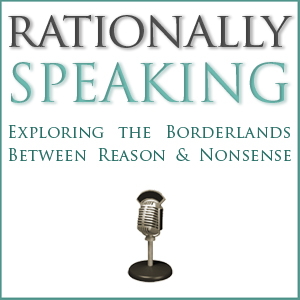Rationally Speaking #190 - Amanda Askell on "Pascal's Wager and other low risks with high stakes"
Rationally Speaking Podcast
New York City Skeptics
4.6 • 787 Ratings
🗓️ 6 August 2017
⏱️ 46 minutes
🧾️ Download transcript
Summary
Transcript
Click on a timestamp to play from that location
| 0:00.0 | Today's episode of Rationally Speaking is sponsored by Givewell, a nonprofit dedicated to finding outstanding charities and publishing their full analysis to help donors decide where to give. |
| 0:09.2 | They do rigorous research to quantify how much good a given charity does, how many lives does it save, or how much does it reduce poverty per dollar donated. |
| 0:17.4 | You can read all about their research or just check out their short list of top recommended evidence-based charities to maximize the amount of good that your donations can do. |
| 0:25.3 | It's free and available to everyone online. Check them out at give well.org. Welcome to rationally speaking, the podcast where we explore the borderlands between reason and nonsense. |
| 0:48.2 | I'm your host, Julia Galef, and with me is today's guest, Amanda Askell. |
| 0:52.5 | Amanda is in her final year of her philosophy PhD at NYU, where her research focuses on all the ways in which incorporating infinities into our decision theory and our moral theory causes problems. |
| 1:06.2 | Amanda, welcome to the show. |
| 1:07.4 | Thank you for having me. |
| 1:08.3 | So I've been meaning to invite you on the show for a while now, but the immediate impetus |
| 1:13.6 | was in a recent episode with Will McCaskill. |
| 1:15.6 | We were talking about normative uncertainty, among other things, and we ventured briefly into |
| 1:22.6 | the territory of Pascal's Wager, which very briefly is the philosophical argument put forth by Blaise Pascal |
| 1:30.1 | in which he said, people should really try to believe in God because if you're wrong and there is |
| 1:35.0 | no God, then oh well, that's fine. But if there is a God, then believing in him is going to be |
| 1:41.5 | much better for you than not believing in him. And so the sort of |
| 1:45.2 | expected utility of belief is much higher. And this is one of those arguments that I find there's |
| 1:52.5 | this non-monitonic relationship between how much philosophical exposure people have and how seriously |
| 1:57.5 | they take that argument in that a lot of people without a ton of education |
| 2:02.1 | are like, yeah, that makes sense. You should believe because higher payoff. And then a lot of people |
| 2:06.8 | who are like well educated are very dismissive of Pascal's wager and they're like, oh, that's ridiculous |
| 2:11.2 | and they have one or two objections to it. And then philosophers are like, well, actually it's |
| 2:15.8 | harder to dismiss than you might think, which is kind of an inch. I like, I like things with that shape of like people's belief in them. |
... |
Please login to see the full transcript.
Disclaimer: The podcast and artwork embedded on this page are from New York City Skeptics, and are the property of its owner and not affiliated with or endorsed by Tapesearch.
Generated transcripts are the property of New York City Skeptics and are distributed freely under the Fair Use doctrine. Transcripts generated by Tapesearch are not guaranteed to be accurate.
Copyright © Tapesearch 2025.

